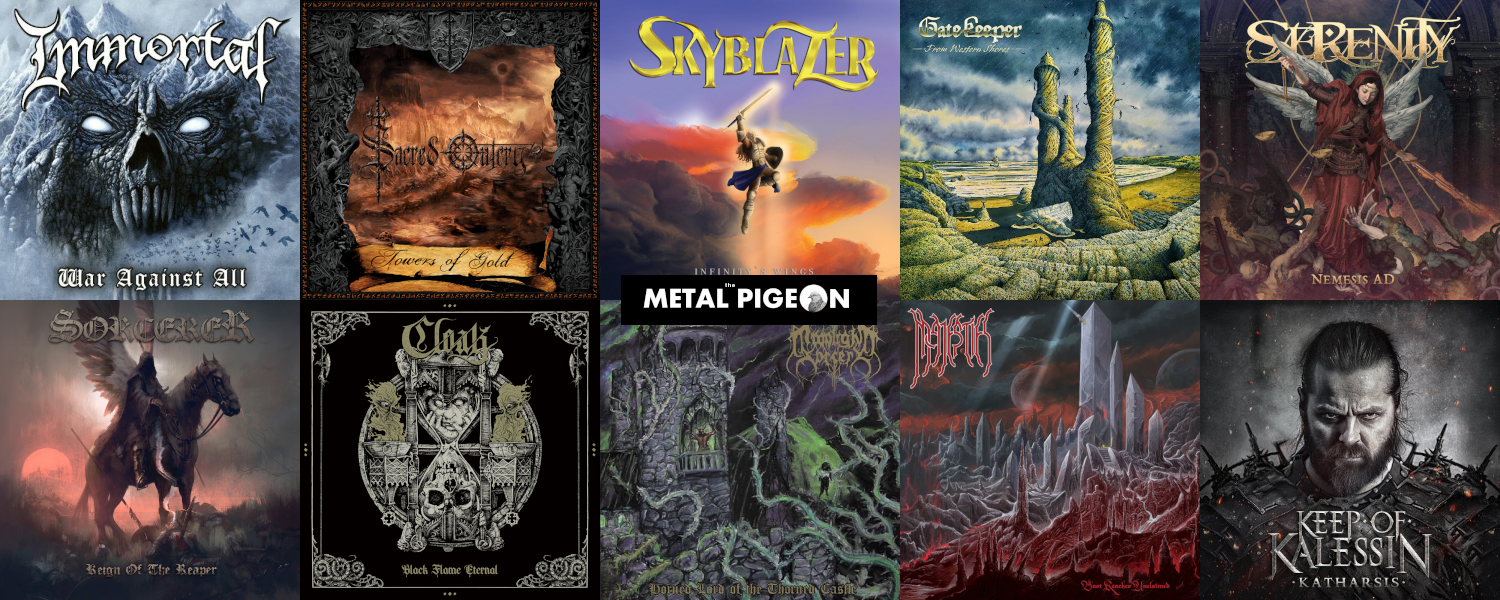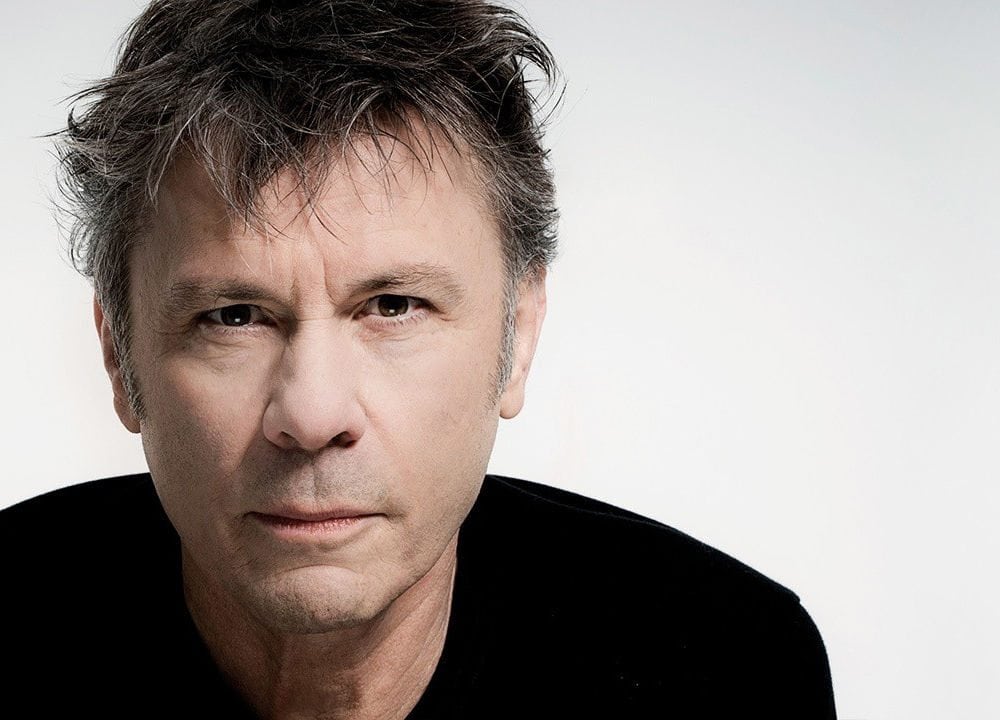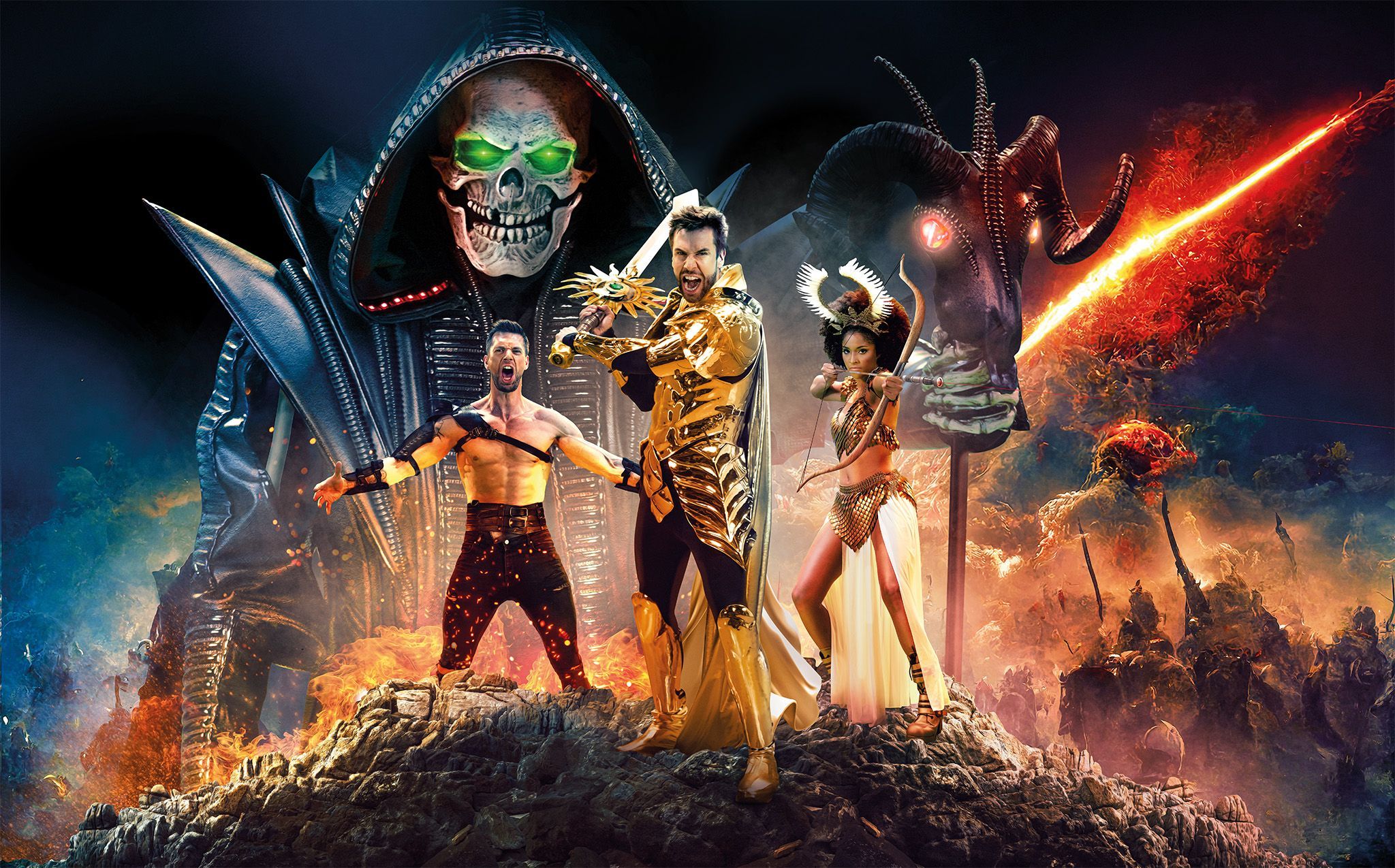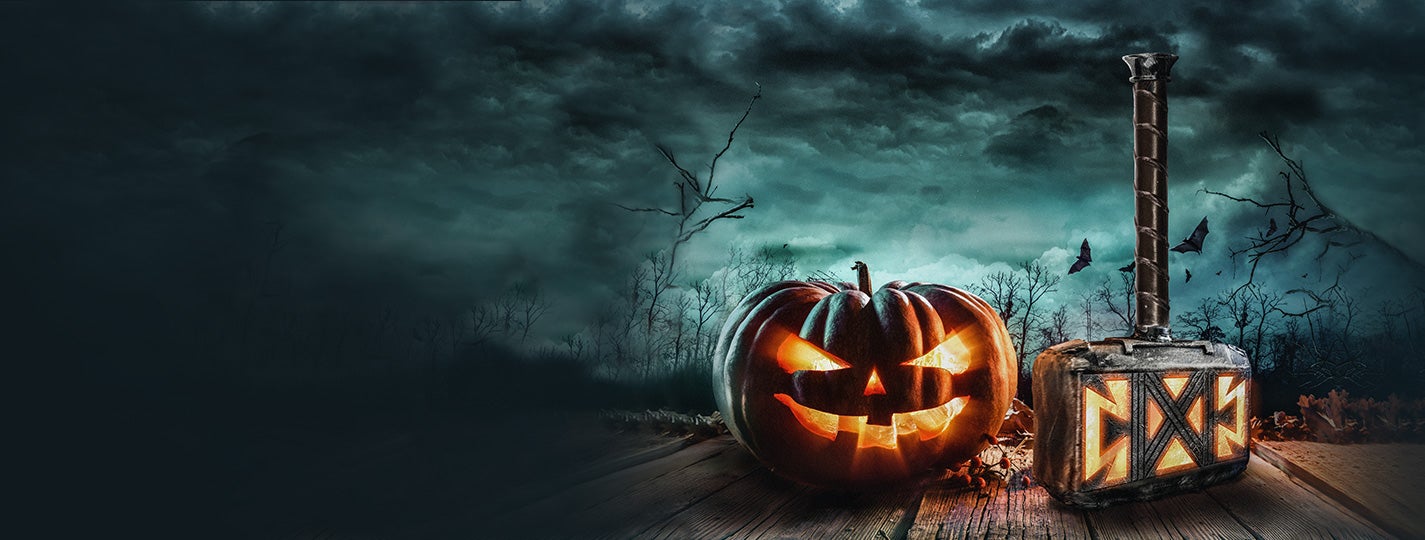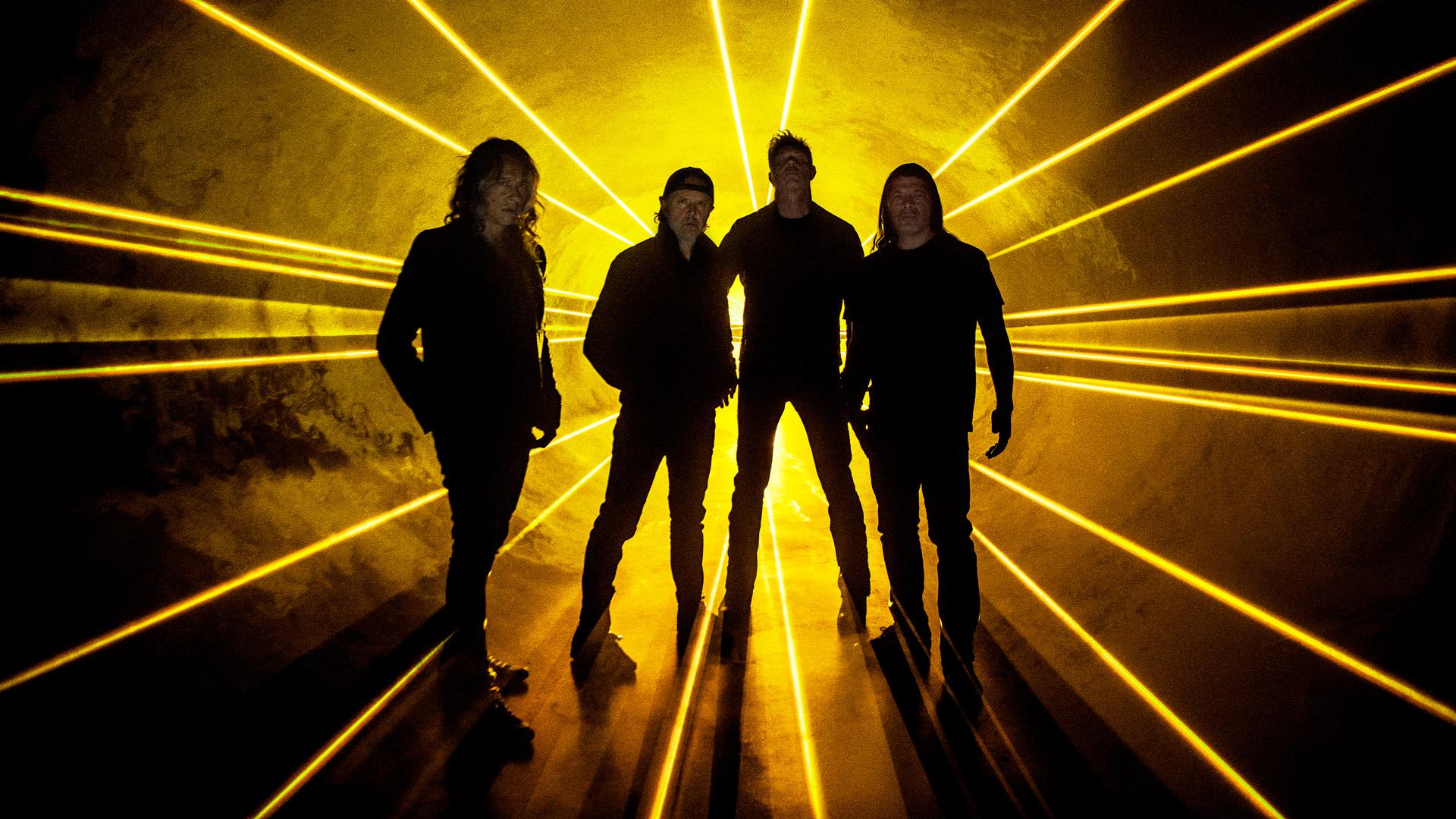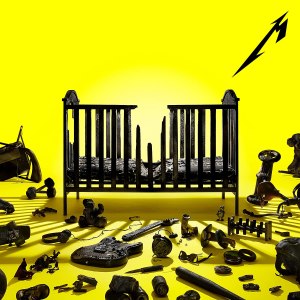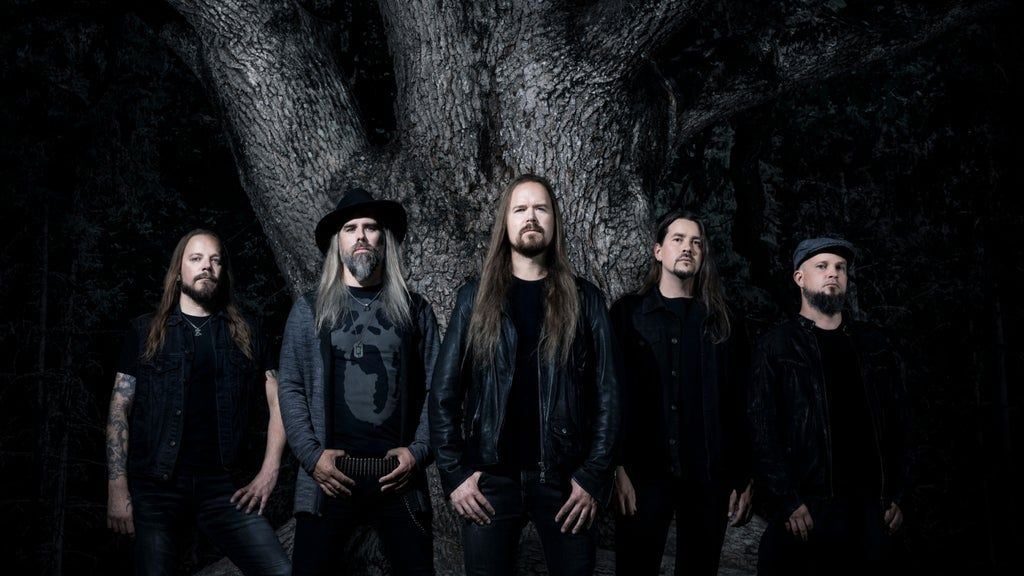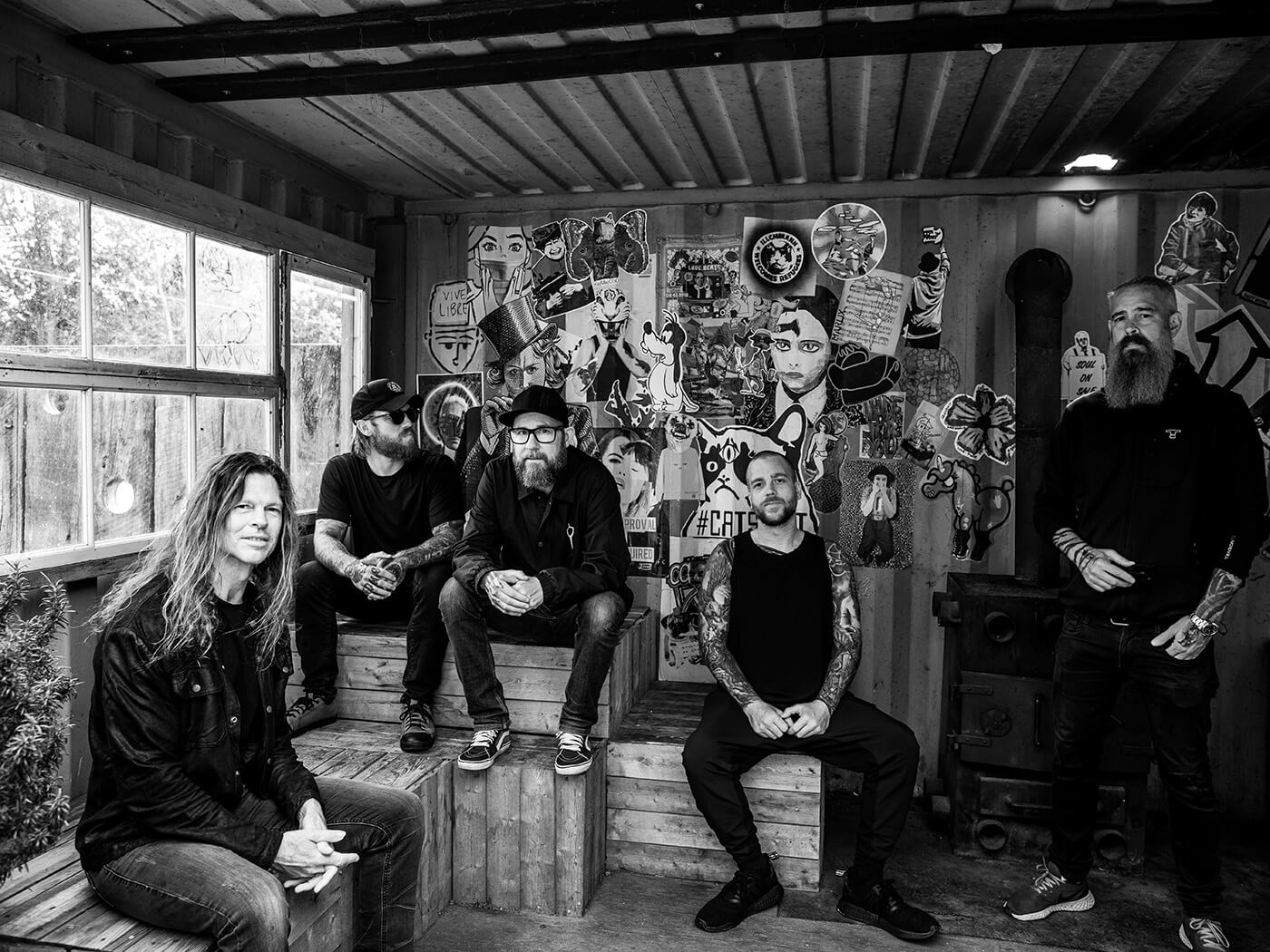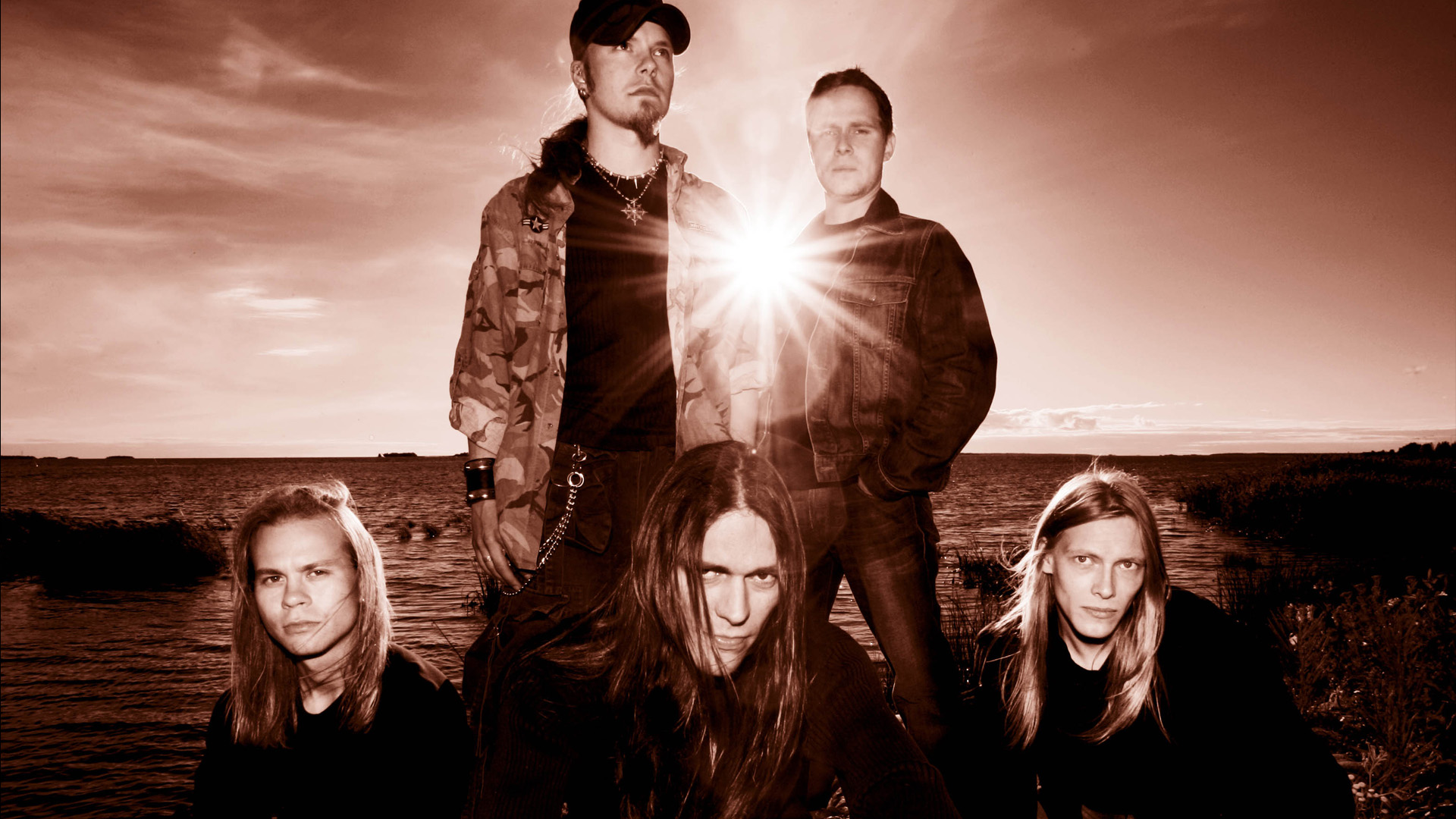
Here it is, part two of the Best of 2023 feature, with my top ten albums of the year, as always kept to a short list of ten, despite my having a mess of assorted runners up and one hard cut that could theoretically be called number eleven. For any newcomers to the blog, I don’t bother with numbering past the top ten, because with a few exceptions of certain lists I’m really interested in, I’ve always found it hard to parse out how numbering things for personal taste based lists matters much after that. This year I’ll gladly recommend checking out the recently dropped 2023 recap episode by our friends at The Metal Exchange Podcast, whose lengthily numbered lists (one of the aforementioned exceptions) are interesting because they cover quite a bit of stuff that I had either only listened to a few times or not heard at all, and their tastes closely align with mine. For my part, this list was maybe one of the more agonized over with the exception of the top slot, whom I’ve suspected was going to sit atop there for months and months now. The year started off slow, but surged as the months went on and we all had to play catch up, and the size of nominee pool this year was way more crowded than it had been these past couple years. It was great to see that within power metal we see signs of maybe things starting to turn around, with some really promising new artists represented on the list below, after it seemed like the subgenre had started to lose it’s way over the past few years. It’s also striking to see that six of the top ten albums on my list are from artists that were either new or certainly new to me, one of those small details that spells great things for the health of metal overall (or perhaps just my relationship to it, either way). If you want to hear about those other album nominees that didn’t make it, as well as my cohost Cary’s best of picks, check out our upcoming 2023 recap episode of the MSRcast podcast. And finally, the list:
1. Sacred Outcry – Towers of Gold:

I was thinking about this recently, the hypothetical idea that my favorite band of all time, Iron Maiden, could have released a near perfect throwback sounding album in 2023 reminiscent of Seventh Son of a Seventh Son, and honestly, I’m still not sure it would be able to dislodge Towers of Gold from atop this list. That is just how genre defining this album is, a modern day power metal classic. One that in future discussions of essential power metal records, I’ll casually list alongside Keeper I&II, Nightfall in Middle Earth, Land of the Free, and frickin’ Ecliptica, just the whole damn list of records you love and know by heart and I don’t have the time and space to list right now! This is the most convincingly well done old school pure power metal record I’ve heard in ages, a complete start to finish compelling listening experience rife with intensity, grand drama, theatricality, and a level of emotion woven into the fabric of the songwriting that reminds me of when I first heard those classic Khan era Kamelot albums. Much of the attention of course is falling on what is seemingly a career renaissance defining performance for legendary vocalist Daniel Heiman, and rightfully so (more on him in a second), but to me the real star here is George Apalodimas’ songwriting and overall conceptual vision. The mythic storyline that serves as the musical and lyrical focal point throughout, of a band of adventurers who hungrily lust after the towers of gold they hear described by an old man at their inn is broad and vague enough to be filled in with grand impressionist brushstrokes, not detailed plot that can often bog down the songwriting in an effort to get across tiny details. Yet credit to Apalodimas here, because the premise of the lyrical narrative is still cleverly written in a first person style to create depth and immersion the way the best concept albums are (think Mindcrime), and not delivered like a children’s book of fables. It took me a few listens just taking everything in before some of the lyrics really began to pique my attention, but this was really the singular album in metal this year where I found my attention drifting to what Heiman was singing as opposed to just how he was singing it, a credit to the care and attention paid to the lyricism at work.
Of course let’s take a moment to talk about Mr. Heiman here, because he is a legendary power metal vocalist who not only commands interest in anything he does, but deserves his flowers here for turning in what maybe is one of the best performances in his career, alongside those Lost Horizon classics we all love. Consider his energizing, soaring tenor on galloping uptempo anthemic tunes such as “The Flame Rekindled” where he navigates highly rhythmic vocal lines and knows exactly where to pepper in those patented screams from the utter depths of his soul (what else can you call those?). I love some of the vocal decisions being made here, like an almost deliberately slower, stately approach to the vocal melody on “The Voyage” as the music surges ahead underneath, creating a billowing effect like you’re visualizing the wind hitting the sails of a ship at sea. The wild swings of his voice on “Into the Storm” are so rich and nuanced, really lending weight and gravitas to the storytelling, and of course the reason for a standing ovation here is his work on the best songs listee “Symphony of the Night”, where his he manages to somehow fit in distant screams into a performance that is achingly emotive while hushed and restrained, a masterclass in itself. This song is also a great example of the musical synergy coursing through this entire album, the guitar work by Steve Lado is wonderfully melodic, and expressively lyrical. Apalodimas’ own excellent bass work is actually a crucial element to many of these pieces, his playing reminds me of Eddie Jackson of Queensryche, a throbbing pulse that feeds so much of the sound being crafted here. And kudos to the technical drumming of Defkalion Dimos, who is a fill machine all throughout this album, and knows how to match the drama of the music when the intensity ramps up with a battering attack, but also creative patterns that are contrary to what you’d expect. Even though these guys are all new musicians to the project, with this as their first recording together, it all has the feel of a band that’s been playing together for a decade plus, and credit for that has to go to Apalodimas. I hope he can keep this lineup together, although I trust that he can deliver something great next time as well even if he’s unable to retain their services. I’m sure by now he knows that he’s achieved something spectacular with Towers of Gold, but just in case, here’s one more voice to join the already loud chorus of people proclaiming so.
(Also appears on: The Metal Pigeon’s Best Songs of 2023)
2. Skyblazer – Infinity’s Wings:

This album really took a journey to wind up at this placement on this list. At first I was keeping it off entirely because it just seemed like such a homer pick for someone like myself who is a massive fan of Power Quest, which is (among a few others such as Crystallion and Freedom Call) the chief influence driving Johannes Skyblazer in this project. Then I sheepishly slid it in at number ten down there because I couldn’t deny the sheer amount of times I listened to it. Yet as the weeks went on and I kept refining and re-ordering the list as I listened to all the candidates and jostled things around, I realized that it would be entirely disingenuous of me to not have this much much higher. And I can’t really say why it took so long to reach that conclusion — maybe its because Infinity’s Wings is the least heaviest record on this largely extreme metal dominated list, or maybe it’s because of its unintentionally home studio sounding, semi-amateurish production (which I think is a charming strength of the album, but I know that might be a minority opinion). What I know for absolute certain however, is that my introduction to Skyblazer this year was downright poetic in that Power Quest unceremoniously announced their retirement with a simple press release in February, so this album felt like a passing of the torch for this particular style of power metal. Johannes nails what makes this keyboard driven, energetic, bright-toned, euphoric power metal sound so appealing, and he writes suitably anthemic songs to match, loaded with memorable hooks, soaring melodies, and sharp chord progressions. Unlike his heroes, who had the benefit of full band lineups and recording studios, Skyblazer is essentially a one man project, with Johannes handling all the songwriting, recording, and lead vocals on his own (with some assists from a few guests). Admitting in interviews that his audio production can’t compete with the bigger bands, he’s expressed hope that his attention to the songwriting would compensate, and I think he has achieved that in spades. The result is a unique sound, even apart from his influences although their spirit flows eagerly through this album. In a year where I loudly complained about the state of popular power metal as disheartening, dumb garbage, Infinity’s Wings was among a handful of defiantly earnest, heart on sleeve, shimmering jewels that showed me and others that there are still artists out there who remember why this style of music meant so much to many of us in the past, and can continue to going forward.
3. Serenity – Nemesis AD:

Sometimes, the injection of new blood in a lineup can act as an immediate catalyst for creative growth in a band, as opposed to forcing growing pains that need to be endured. With the exception of one truly inspired album (2016’s Codex Atlanticus) in the immediate wake of longtime guitarist Thomas Buchberger’s departure in 2014, Serenity had been adrift creatively in the past few years — and it seemed like Georg Neuhauser might have felt that somewhat as well, launching new side projects with Warkings and Fallen Sanctuary. The latter of these projects saw him pair up with Temperance songwriter/vocalist/guitarist Marco Pastorini, and yielded a pretty enjoyable, hard rock meets AOR meets power metal record. Credit to Neuhauser then for realizing that Pastorini would give Serenity some needed juice, because Nemesis AD is their best album since War of Ages, hearkening back to the magic they had with the Buchberger lineup. I already discussed how 2023’s best songs list topper “Reflections (of AD)” made me giddy with euphoria, but I didn’t get to mention how “Ritter, Tod und Teufel (Knightfall)” brimmed with the kind of Sonata Arctica meets Kamelot prog-power bliss that echoed shades of their classic Death & Legacy album. Nor did I get to mention how glory-claw inducingly epic the Roy Khan duet “The Fall of Man” turned out (that Kamelot influence coming full circle), nor how utterly charming the sweepingly melodramatic and achingly sweet Broadway-inspired power ballad “Crowned by an Angel” was, a tune Tobias Sammet would have loved to have penned. Pastorini’s influence is felt all throughout this album, the songs are sharper, the melodies sweeter, and there’s an overall sense that this band feels creatively renewed once again.
(Also appears on: The Metal Pigeon’s Best Songs of 2023)
4. Sorcerer – Reign of the Reaper:

Expansive, cinematic, spiritual, and downright Epic with a capital E, Sorcerer delivered the finest album of what has been a stellar string of solid to excellent releases since their full band resurrection in 2015. They are to my mind, ascending the heights of trad laden doom metal in terms of artistic output to justifiably be compared to the greats of the subgenre in Candlemass. Despite it’s late October release date, this album casts such a large shadow over this list, that it was one of the first candidates I wrote down when compiling the list, and an easy one to highlight for one of the these ten spots. So much went right on this album, and it was due to the band playing around with their epic doom metal formula a bit. Where they leaned very doomy on 2020’s Lamenting of the Innocent which I feel led in large part to that album’s tendency to drag — they reversed course for Reign of the Reaper, introducing more classic heavy metal songwriting into the mix and restricting the doomier parts of their sound to aspects such as guitar tone, dense riffing, and keyboard derived cinematic atmospheres. As a result, the songwriting got sharper, more reminiscent of the clinic they put on in 2017’s The Crowning of the Fire King, songs oriented around not only memorable hooks, but recurrent melodic motifs articulated by Kristian Niemann’s impeccable signature lead guitarwork (seriously he’s cemented himself as one of my all-time favorite guitarists). This lean towards more traditional metal also opened up things for vocalist Anders Engberg to craft some of his most soulful and expressive vocal performances to date, reminding me in many spots (especially those soft sung intros) of the great Ronnie James Dio. You’ve probably noticed that “Morning Star” landed high on the Best Songs of 2023, but the truth is that this entire album was filled with truly incredible songs with little amazing moments all their own and it’d take way too long to go through them all. Just trust me and put this on and let it spin if you haven’t already, it’s one of the most satisfying listens of the year.
(Also appears on: The Metal Pigeon’s Best Songs of 2023)
5. Gatekeeper – From Western Shores:

Undoubtedly one of the strongest front to finish metal albums of the year, Gatekeeper pushed aside any notion of the sophomore slump with their stellar second album From Western Shores. I remember not feeling the buzz that came with their debut many years back, despite giving it a shot largely due to it’s Cruz Del Sur label pedigree, but this album really delivered on what I saw then as budding potential. Part of the success here is just how well new vocalist Tyler Anderson fits the band’s upgraded sound here, his Eric Adams meets Chris Black dichotomous approach meshing perfectly with the more polished production that the Gatekeeper guys have employed this time around. On that subject, the band’s musical DNA of stripped down epic USPM is still preserved here entirely, but the guitars are fuller, lusher, particularly leads and harmonies, and the rhythm section seems tighter than on the debut, giving all these songs a heft and weight that winds up being the central element to this album’s success. With that bedrock in place, guitarists Jeff Black and new guy Adam Bergen are left with free reign to run amok with a flurry of inspired melodies, tight harmonies, and impeccably satisfying solos. Anderson can veer from wild, David DeFeis style yowling moments to these very straight faced Manilla Road meets Dawnbringer style vocals where his tone approaches something akin to a style that would fit in on a stoner metal album, and he covers the spectrum in between, in his best moments here reminding me of 80’s Jon Oliva. This is masterfully done epic power metal with purposefully rougher edges, a heavy bottom end and bared teeth in riffs and attitude, all on a damn near perfect album.
6. Cloak – Black Flame Eternal:

The yearly surprise out-of-leftfield album to make the list is becoming a Metal Pigeon tradition by this point, and this year the honor goes to Atlanta, Georgia’s Cloak, who delivered the most convincing and addictive extreme metal album of the year. Their sound is a blend of intense, grimy black metal with lush gothic metal melodic overtones in a fusion that is as inspired as anything we’ve seen in this space since Tribulation. This is their third album, and despite being on Season of Mist who have a pretty broad promotional reach, this band apparently sailed under the radars of both myself and others I know because we didn’t even play them on the MSRcast until this album came out. But better late than never of course, and although this album leapt out to me as ultra hooky and addictive the moment I listened to it, I didn’t realize how much I loved it until I started doing play count analytics and realized it was one of my most listened to albums in 2023, only second to Sacred Outcry in sheer numbers. I think the reason I came back to it repeatedly is that beyond the catchy riffs and clever blending of rockin’ heavy metal riffs into the whole gothic black metal mix, there is a tremendous amount of depth going on here. Take the two marching, rumbling epics that bookend the album, where the band confidently uses gradual tempo changes and spacious silence to build to impactful climaxes. And “With Fury and Allegiance” is built on such a excellent riff progression, simultaneously furious, melodic, and cinematic in it’s breadth (this song narrowly missed the best songs list). That explosive thrust that occurs at 3:36 (“Come silent night…”) was one of my favorite singular metal moments of the year, earning a fist pump every time I heard it no matter how ridiculous I must have looked.
7. Keep of Kalessin – Katharsis:

Talk about an album that shook the jaded metalhead right out of me when I first listened to it back in what, April? It was just one album among a long list of them I was playing while talking a walk in a park on one of our nicer spring days. I suppose I’ll forever associate the album with my memory of that day, because I remember it was really the first album of the whole year that really thrilled me in that basic, fundamental way of just being a metal fan. This album was not only aggressively heavy in blasts, and full of all the meaty riffs and excellent scream/harshes that have characterized the band’s sound all these many years — but it just swept over me with it’s grandiosity and sense of adventure. I hear this combination most vividly in songs such as “Hellride” with its skyrocketing upward surge when the chorus hits, that rare kind of moment that I love when sustained intensity is compounded with a blast of even more intensity. The band’s sense of melodicism seemed to spill over the edges everywhere here, as on the Enthrone Darkness Triumphant invoking “War of the Wyrm”, where the inclusion of a semi-spoken word section actually enhanced the dramatic sweep of the song, rather than sucking all the momentum out like most bands tend to do when trying it. That melodicism characterized the Best Songs of 2023 listee “Journey’s End”, a bittersweet, emotive ballad that served as a perfect mid-album meditation and mood changer. And I was struck by how much power metal influence seemed to creep into the whole affair here, particularly on the epic “Throne of Execration”, where I felt major Blind Guardian/Andre Olbrich vibes happening on the harmonized lead guitars that poured a gorgeous melody out over the top towards the outro of the song. This was genuinely a multi-faceted album that hit all my metal sweet spots in various moments, molded together by creative and inspired songwriting and the feel of listening to something expansive, far reaching, and ambitious.
(Also appears on: The Metal Pigeon’s Best Songs of 2023)
8. Moonlight Sorcery – Horned Lord of the Thorned Castle:

It’s not very often that you can aptly describe a black metal album as sounding magical, and dare I go further, sparklingly magical(!), but Finland’s Moonlight Sorcery achieves exactly that in a combination of symphonic power metal inspired ultra melodicism via keyboard synths and neoclassical guitar leads strewn across Horned Lord of the Thorned Castle. And maybe its the fact that I’ve been reading up on moon druids for DnD recently (nerd!), but this amalgam of sounds really does live up to the band’s name, sounding for all the world like the soundtrack to a swords and sorcery fantasy adventure-RPG videogame at times (blackened vocals aside). I was recommended this album by several people gushing about it all at once around October, and it’s rare that something manages to grab so many people’s attentions all at once these days when we’re usually all on different pages regarding everything. Guitarist and main songwriter Matti Meri-Huhti (credited as “Loitsumestari Taikakallo” here) seems to be the architect of this fusion, and I’d be a little shocked if he wasn’t a major Yngwie Malmsteen fan at some point in his life because his leads remind me of the Swedish master, tastefully articulated and thoughtfully patterned. Hearing this kind of lead playing set against the backdrop of pretty faithful, yet polished up second wave Norwegian black metal is such a refreshing and novel contrast. There have been examples where other artists have tried something close to this, but nothing that ever went all in on that sharp of a contrast the way Moonlight Sorcery have accomplished here. The culminating apex here for me is “Into the Silvery Shadows of the Night”, a hauntingly beautiful stately dirge with a mystical sounding lead melody ushering us during the outro. This is without a doubt one of the most memorable black metal albums of the last five, possibly ten years, definitely an easy one to return to.
9. Immortal – War Against All:

In the spirit of not overthinking this one, this second post Abbath Immortal album just flat out rocked me ever since it’s release this summer, somehow managing to outdo the triumphant 2018 comeback Northern Chaos Gods. And you know, Demonaz has always had the right to lay claim to being at least fifty percent of the formula that made Immortal so successful, but what’s shocking is just how he’s managed to shake off the notion that Abbath was largely the musical driving force in the band. This new album sees Demonaz continuing the look back towards the band’s early, more blistering paced releases, while dropping a nod towards the mid-paced era they’d start to explore towards the turn of the millennium. That he manages to accomplish this while keeping the production crisp and pristine (yet not polished) is a testament to how well he understands what made those great Immortal records so undeniably appealing to audiences beyond black metal. Songs such as “War Against All”, “Blashyrkh My Throne”, and “Wargod” are catchy as all get out, and have that thrashy edge that I often wish more black metal bands would employ. I also appreciate that he hasn’t tried to stray from the tried and true fantastical Immortal style, going all in on the band’s mythos and fantasy steeped tales, as on “No Sun” with it’s tale of the mountain of evil (where there rises no sun, duh). I’ve seen people take some sideswipes at Demonaz for continuing the Blashyrkh mythos throughout the lyrics, and I want to shout at them to clear the hall — the imagery informs the sound and vice versa, its grim and frostbitten and that’s why we loved this band and all their classic albums. That Demonaz convincingly continues that spirit on War Against All is something to appreciate and cherish, not jadedly dismiss.
10. Majesties – Vast Reaches Unclaimed:

Considering all the hype and subsequent disappointment of the recent In Flames “return to form” nonsense that occurred earlier in the year, my lack of enthusiasm for the recent Insomnium album, and also counting the semi-bummer that was The Halo Effect’s debut album last year, I had felt myself jaded about the prospect of anything genuinely interesting hitting me from the melodic death metal space this year. Enter in this under the radar release from Majesties, a Minneapolis based side project from the two dudes from Antiverse, guitarists Carl Skildum and Matthew Kirkwold (who plays bass here), joining together with vocalist/guitarist Tanner Anderson from the vaunted Obsequiae (I loved The Palms of Sorrowed Kings, sadly discovering it well after it’s 2019 release). Um, these guys must be kindred spirits to me in craving old school sounding Gothenburg melodeath with no core or modern melodic death influences whatsoever, because Vast Reaches Unclaimed is pure musical comfort food. Sounding like a cross between Lunar Strain era In Flames, Skydancer era Dark Tranquility, and a lost Gates of Ishtar album, this is a revisitation of a sound that few can imitate and whose progenitors have long abandoned. These guys just get it, the harmonized leads, the density of the crunchy riffing, Anderson’s perfectly mixed vocals (lower than the guitars, somewhat distant and appropriately hoarse as a sharp contrast to all the vibrant melody happening). A true longform, full album listening experience, I’ve returned to this album again and again almost as a nostalgia soaked soundtrack to go about my day to. It’s genuinely difficult to pick a favorite song here or stand out riff because it just keeps on coming, like an ever flowing stream (heyo!). This might be the first thing I’ve heard since… well, first hearing classic melodeath back in the day, that really took me back to the feeling I experienced when first stumbling onto those classic records and that awesome sound I love so much.

